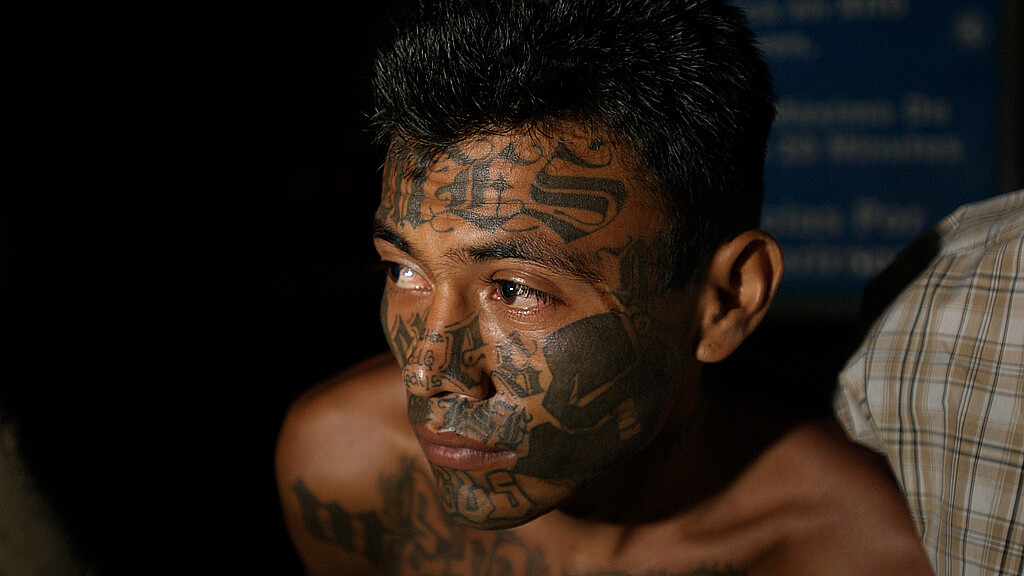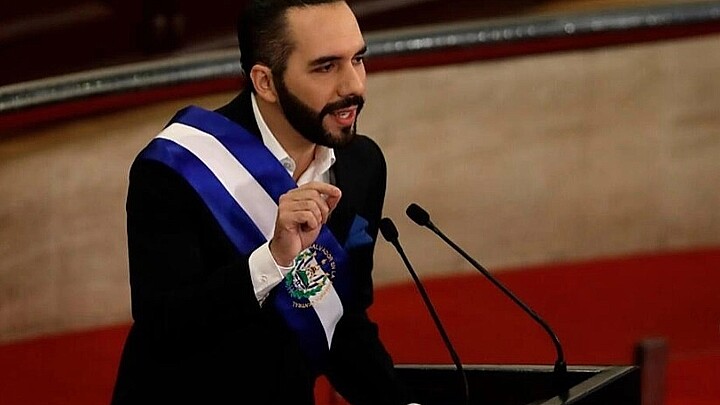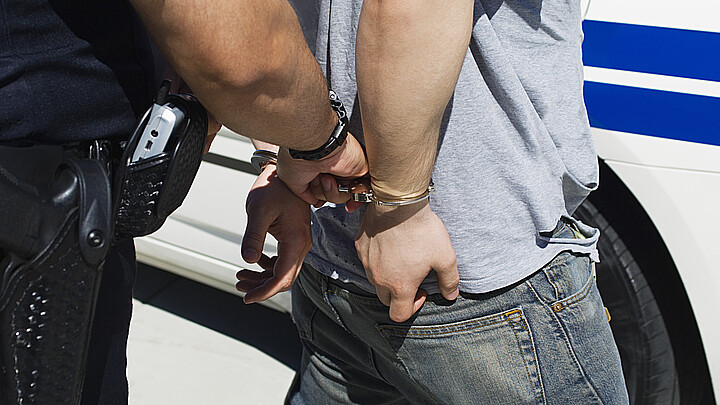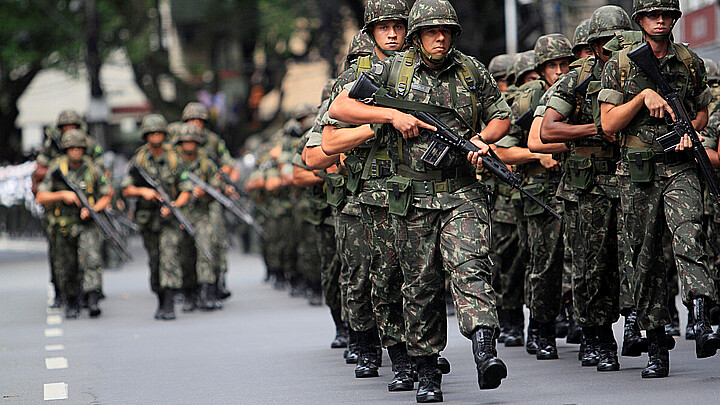Crime
VIDEO: Inside El Salvador’s new 'mega prison' for gang members
“This will be their new house, where they will live for decades, all mixed, unable to do any further harm to the population,” the president said

February 28, 2023 8:05am
Updated: February 28, 2023 8:05am
El Salvador released pictures of the 2,000 inmates the government moved into the country’s new “mega-prison” for 40,000 gang members amid President Nayib Bukele’s crackdown on crime.
“At dawn, in a single operation, we transferred the first 2,000 members to the Center for the Confinement of Terrorism (CECOT),” Bukele posted on Twitter along with a video showing the tattooed men dressed only in white boxers arriving at the new installation, which is said to be the largest in the Americas.
“This will be their new house, where they will live for decades, all mixed, unable to do any further harm to the population,” the president added.
The video shows the inmates loaded onto buses with their hands and feet in shackles and their heads shaven. In another shot, the prisoners are seen sitting on the floor with their hands behind their heads as armed guards stand around. Finally, they are led in large groups into their cells.
Hoy en la madrugada, en un solo operativo, trasladamos a los primeros 2,000 pandilleros al Centro de Confinamiento del Terrorismo (CECOT).
— Nayib Bukele (@nayibbukele) February 24, 2023
Esta será su nueva casa, donde vivirán por décadas, mezclados, sin poder hacerle más daño a la población.
Seguimos…#GuerraContraPandillas pic.twitter.com/9VvsUBvoHC
Last March, Bukele established a state of exception after the Central American country saw a surge in gang-related homicides. Under the state of exception, constitutional protections are temporarily suspended, and there is limited freedom of association. Additionally, Bukele reformed the country’s penal code to increase jail time for gang members and try minors who are involved with gangs as adults.
According to the Salvadoran government, more than 64,000 gang members have been arrested, 57,000 of which are currently in prison awaiting trial. The arrests account for more than 2% of the country’s adult population.
Human rights organizations, however, have criticized the measures El Salvador has taken during the crackdown. Human Rights Watch claimed that the crackdown has led to “mass arbitrary detention, torture and other forms of ill-treatment against detainees, deaths in custody, and abuse-ridden prosecutions.”










